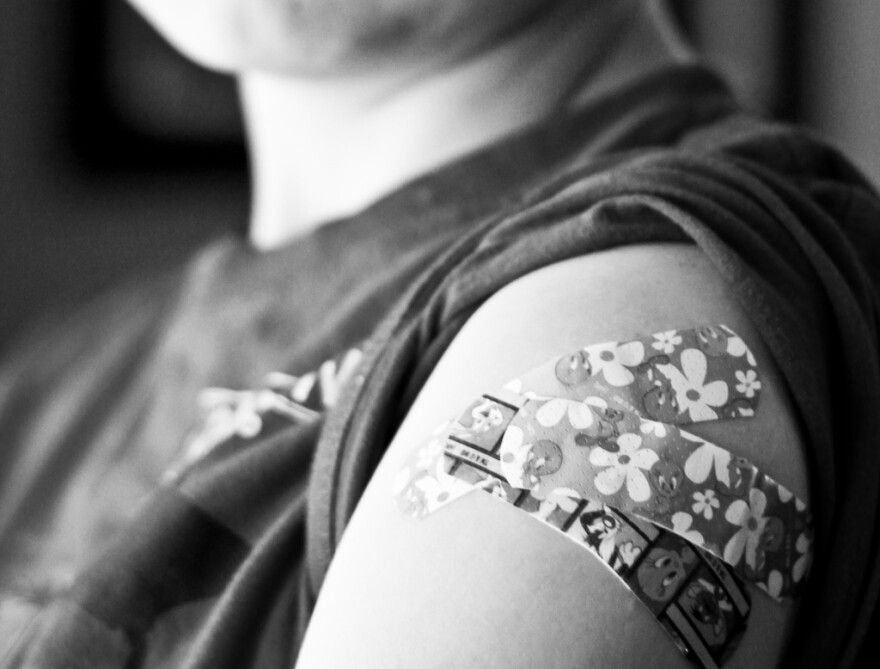This archival content was originally written for and published on KPCC.org. Keep in mind that links and images may no longer work — and references may be outdated.
California clarifies new law: Provide special ed to unvaccinated students

In response to confusion among some school districts, California's departments of public health and education have updated the explanation of the state's new immunization law to clarify that unvaccinated special needs kids must receive all of the services required by their Individualized Education Programs.
The law, which starting this summer will affect kids entering daycare and incoming kindergartners and seventh graders, eliminates the personal belief exemption from state immunization requirements, leaving only a medical exemption. Children who are home-schooled will also be exempt.
The law's text says its provisions "do not prohibit" a student "from accessing any special education and related services required by his or her individualized education program," but the passage does not include a reference to these students' vaccination status.
Federal law requires schools to provide special needs students with all of the services outlined in their individualized programs, known as IEPs. That raised a question for school districts: If students with IEPs don’t meet the vaccination requirements, should districts keep them out of the classroom at the risk of not complying with federal law?
That uncertainty led the state Department of Public Health, in consultation with the state Department of Education, to update the FAQ about the law on the "ShotsforSchool" website earlier this month, said Public Health spokesman Carlos Villatoro. The FAQ now says: "Students who have an ... IEP should continue to receive all necessary services identified in their IEP regardless of their vaccination status."
It will be up to individual school districts to determine how they will provide IEP-required services to children whose parents refuse to vaccinate them, said Shannan Martinez, spokeswoman for State Sen. Richard Pan (D-Sacramento), author of the law.
Some IEPs only require one or two hours a week of special services, such as speech therapy. In a case such as that, a school district might choose to provide the therapy off campus, she said.
It's "unclear" whether the IEP clarification will affect school vaccination rates, said state epidemiologist Gil Chavez. The state public health department "will continue to monitor the immunization rates for required vaccines through annual reporting by schools," he said.
In the Los Angeles Unified School District, the provision will likely affect a small number of new kindergartners and seventh graders.
There are 4,969 L.A. Unified sixth graders with IEPs this school year. Just 48 of them are unvaccinated because their parents had utilized the personal belief exemption.
Statewide, there were nearly 718,000 students eligible for special education services and IEPs as of Dec. 2014, the most current data available, according to state education department spokesman Peter Tira. The department does not know how many of those students are unvaccinated, he said.
The state is seeking to ensure that children are immunized against a variety of diseases, including diphtheria, measles, mumps, pertussis, polio and tetanus.
